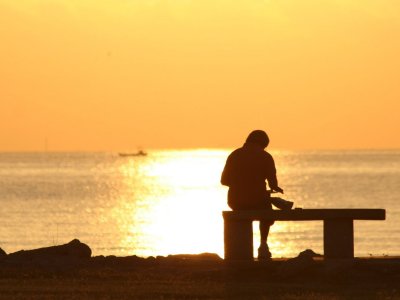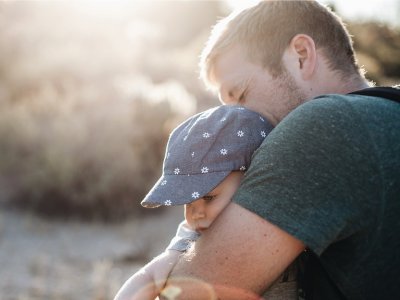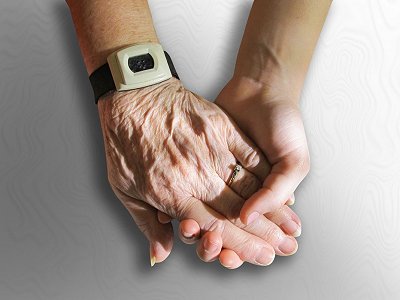
HOW THE KINGDOM COMES IN THE PERSON IN FRONT OF US
Seeking the kingdom of God is located in the world shaping sermon on the mount. Though every era has drawn inspiration from it, some today feel that the pastoral scenes of first century Galilee are too far removed from our efficiently mechanised world. What we will eat and what we will drink and what we will wear is, for most – if not all – of us, a matter of consumer choice, not existential need. But there is a timeless bass rhythm to this sermon. The minds of the people were cluttered with things that caused them anxiety. Isn’t that exactly our problem today?
To seek the kingdom suggests we have to give the task devoted attention, but we are now living in a tech world whose architecture is designed to ensure we can’t give anything attention for more than a few minutes at best.
The whole point of the platforms that dominate our online lives is to distract us from doing anything other than scrolling as long as possible. The average daily time spent on social media per person is two hours and twenty minutes. That’s two hours twenty minutes a day we were spending doing something else only twenty years ago. The shorter our attention span, the shallower our thinking and the narrower our vision. This is true literally, too. We begin to miss things at the margins of our eyeline, which is frequently where God is loitering.
Speaking of the smartphone, Ed Smith, director of the Institute of Sports Humanities and former England cricket selector, says:
Living inside today’s avalanche of artfully packaged digital information makes it hard to attend to anything. The convergence of work, leisure, utilities, entertainment and personal brand into one device leaves us at the mercy of almost involuntary glances and clicks.
We’re all familiar now with the way social media makes us angry and polarised, neither of which states are conducive to prayer. But there are two further outcomes less spoken of. The first, made by Jonathan Haidt in his book The Anxious Generation, is that smartphones create anxiety by undermining the capacity for sustained attention. The second is the suggestion by Chris Hayes in his new book The Sirens’ Call that the reason everyone says they are so jaded all the time now is because this new smartphone culture is using up so much personal energy.
We are becoming more distracted, anxious and fearful – states of mind that could almost have been engineered to stop us leading prayerful lives. To seek something requires sustained attention, but few people have this capacity now. So what is this attention grab doing to our ability to seek the kingdom of God?
Let me give here an impressionistic view of what it means to seek the kingdom of God; one rooted in the Gospel of John. If the Gospel of Mark reads like a Radio 1 news bulletin – stripped back and full of punchy headline incidents – John’s Gospel feels more like a chat show, where intimate space is open for all to listen to. A series of one on one encounters between Jesus and people either seeking, avoiding or simply unaware of the kingdom of God drawing near.
Here are my bullet point take aways:
Nicodemus came to Jesus when it was dark. There are people who seek the kingdom of God but are afraid to be seen talking about God because of what people will think of them. Our visibility, friendliness and confidentiality are vital for them. And the encounter happened at the end of the day, when both Nicodemus and Jesus would have been tired, and Jesus mentally clocking off for the day. We may think things usually happen when we feel great; big stuff often happens when we’ve run out of energy, lost focus and are at risk of resenting the intrusion on ‘me time’. In front of Jesus at that moment was one of only two men who would dignify his body after crucifixion. People have a habit of popping up again, a lot later, changed by an encounter we struggle to recall.
Jesus sat down with the Samaritan woman after a long morning, when his blood sugar was low and it was far more embarrassing to engage her in conversation than not to. She was weighed down with guilt, even if it was hard for her to admit it. I’ve been struck by reading the testimonies of people coming to confirmation, just how many have lived with guilt they do not know what to do with, which nags at them like a bad headache. They search for forgiveness for a long time before they find it is available to them in Christ. The therapeutic world that shapes today’s culture does not tend to focus on guilt as a healthy personal response, but people feel it acutely. We should not be embarrassed to talk about it or to preach the absolution that is available.
Casual meetings like the one at the well are never just individual encounters. She went and told the marginalised community she was part of - one looked down on by snooty, elitist Jerusalem - and the collective response to the kingdom of God they made was felt by the early Church. Behind the person we talk with lie hundreds of other people who may be touched by that encounter. Seeking the kingdom is knowing the person in front of us is surrounded by that cloud of witnesses – not in heaven, but here on earth. And imagining and praying into existence the links that could be made.
We don’t always have to seek the kingdom, sometimes our witness to it is compelled by crisis. The woman allegedly caught in adultery was hauled in front of Jesus and the people he was teaching. Sometimes in ministry we are not poised and have no time to seek the kingdom. But the kingdom seeks us out in the very moment. We have to resist the pile on in today’s scapegoating culture. A culture that has become so pronounced we are considered weak if we don’t judge others quickly. But when we rush to judgment, the most vulnerable lose out to the most powerful and persuasive. This woman was voiceless, but Jesus did not put words into her mouth, and gave her agency.
The kingdom of God comes in the care and attention we give to other people’s bodies. The man born blind is an example of this. It’s also a case study in how not to seek the kingdom of God. Firstly, the disciples talk about him in front of him as if he wasn’t there. Then his neighbours do the same. Then the pharisees call him a sinner because he is blind. Then his scared parents leave their son exposed in front of the religious leaders. We still objectify people with disabilities, and we objectify them with bad theology, too. When we prefer talking about God rather than to God, we can end up objectifying him too, when God is always the subject in the world he has made.
We seek the kingdom in food and drink, in friendship and festivities. The wedding at Cana and the feeding of the five thousand show Jesus attending both to human desire and human need. Our familiarity with conducting rites of passage can lead us to feel blasé about them. But for the people involved it is a life defining moment they will never forget. We seek the kingdom when we share in their emotions, rather than waiting for the event to end. It is probably the most underrated way of seeking the kingdom of God.
And we seek the kingdom when we sit with the pain and loss of others. Anarchists talk about the propaganda of the deed – a deliberate action producing an image so powerful it burns itself into the witnesses and changes the way they think about the world. The raising of Lazarus feels like that to me. Jesus slowed down, and set his own terms for this miracle. I wonder how much it cost him to do this, knowing his friends would think
POPULAR ARTICLES

God In The Cow Shed
2020 has been dominated by the C word. Not that C word. I mean conspiracy theory involve space. Some people believe the

Viral With The Holy Spirit
Since the tech revolution, insurgent new start-ups have enjoyed using the word ‘disruption’

Long Lost family
Some types of storytelling mess with your brain. Intentionally. Like one of those novels where you assume

Valuing Age
Lots of work is being done round unconscious bias in society, especially around gender and ethnicity

